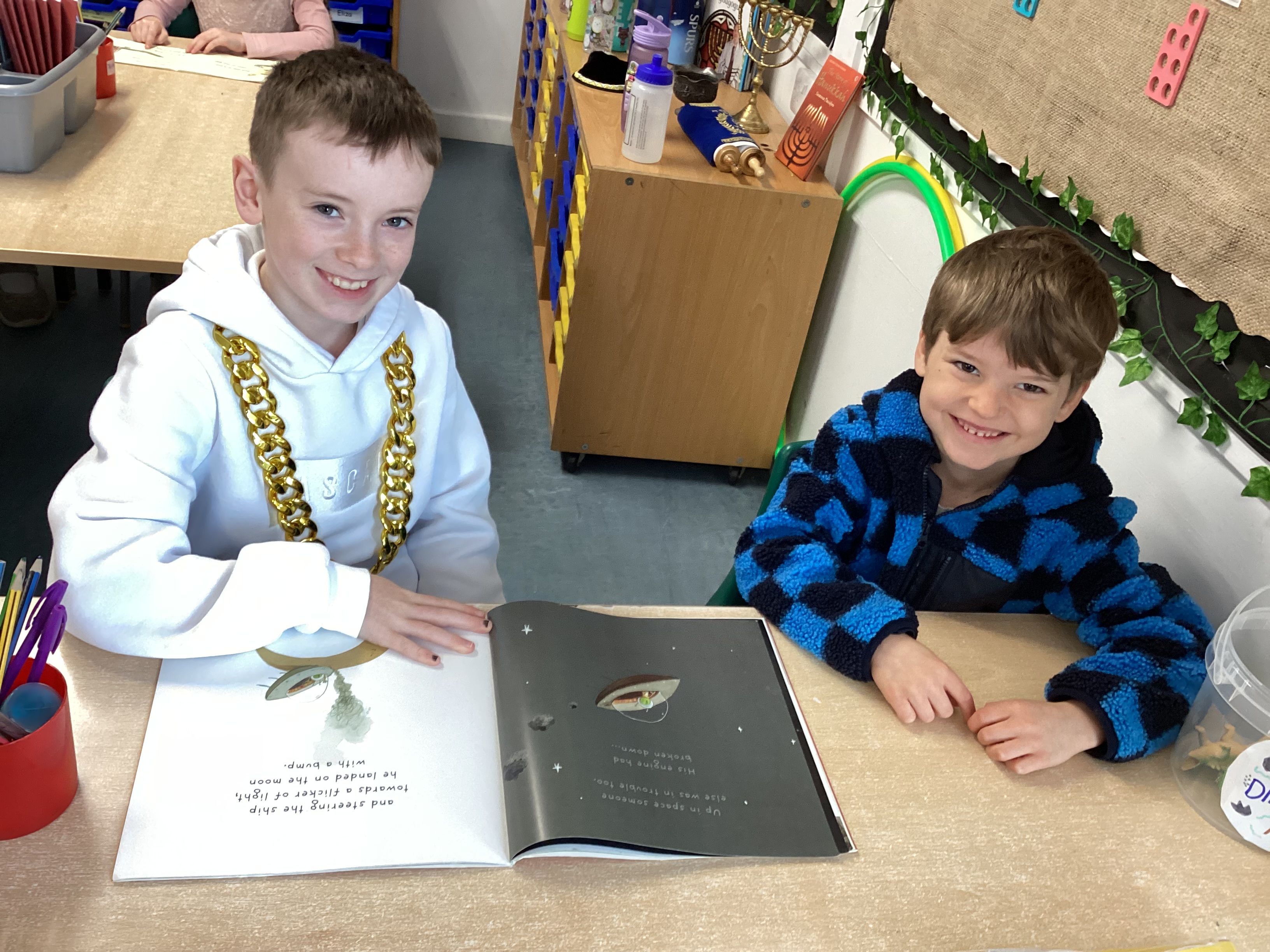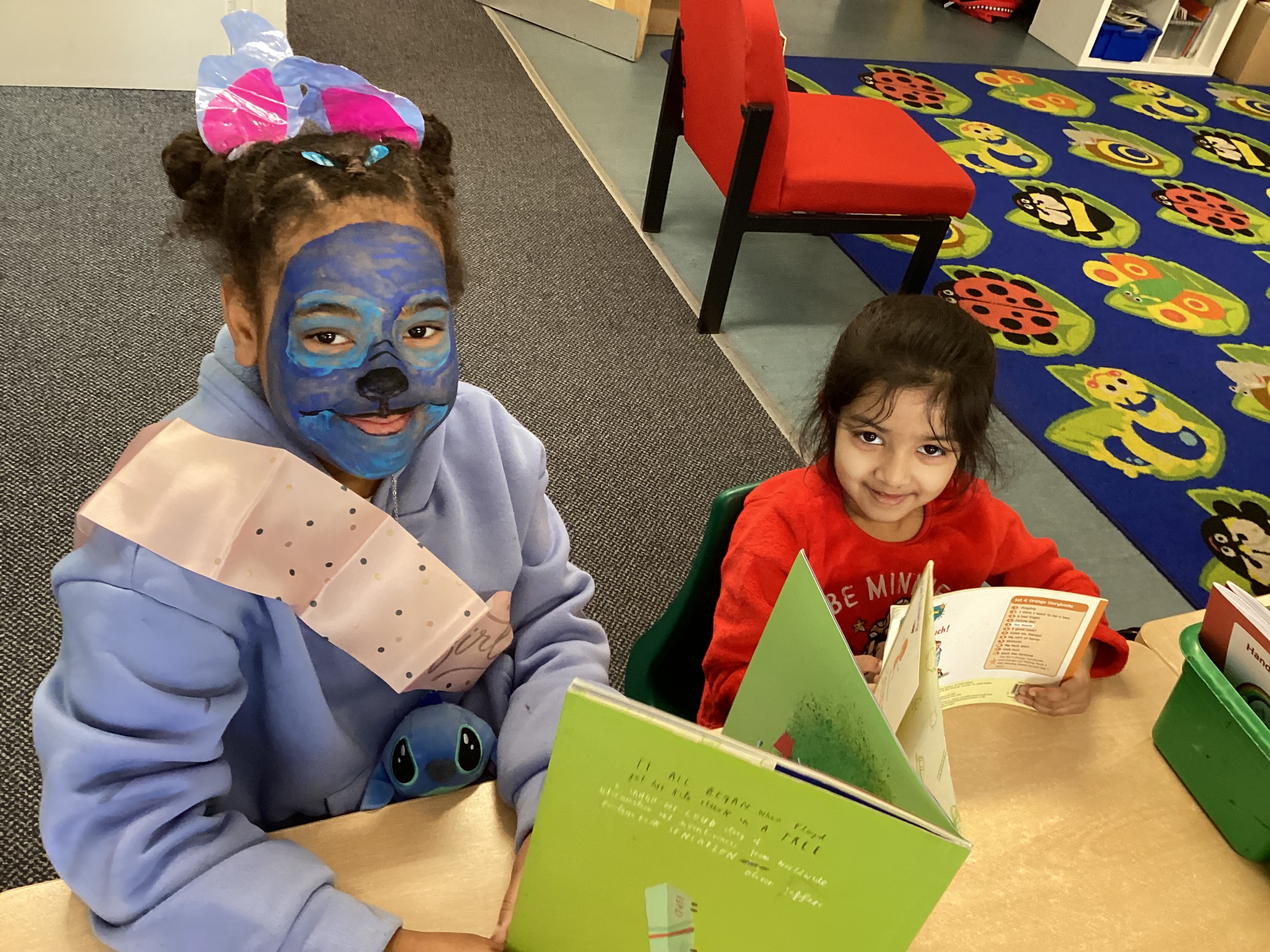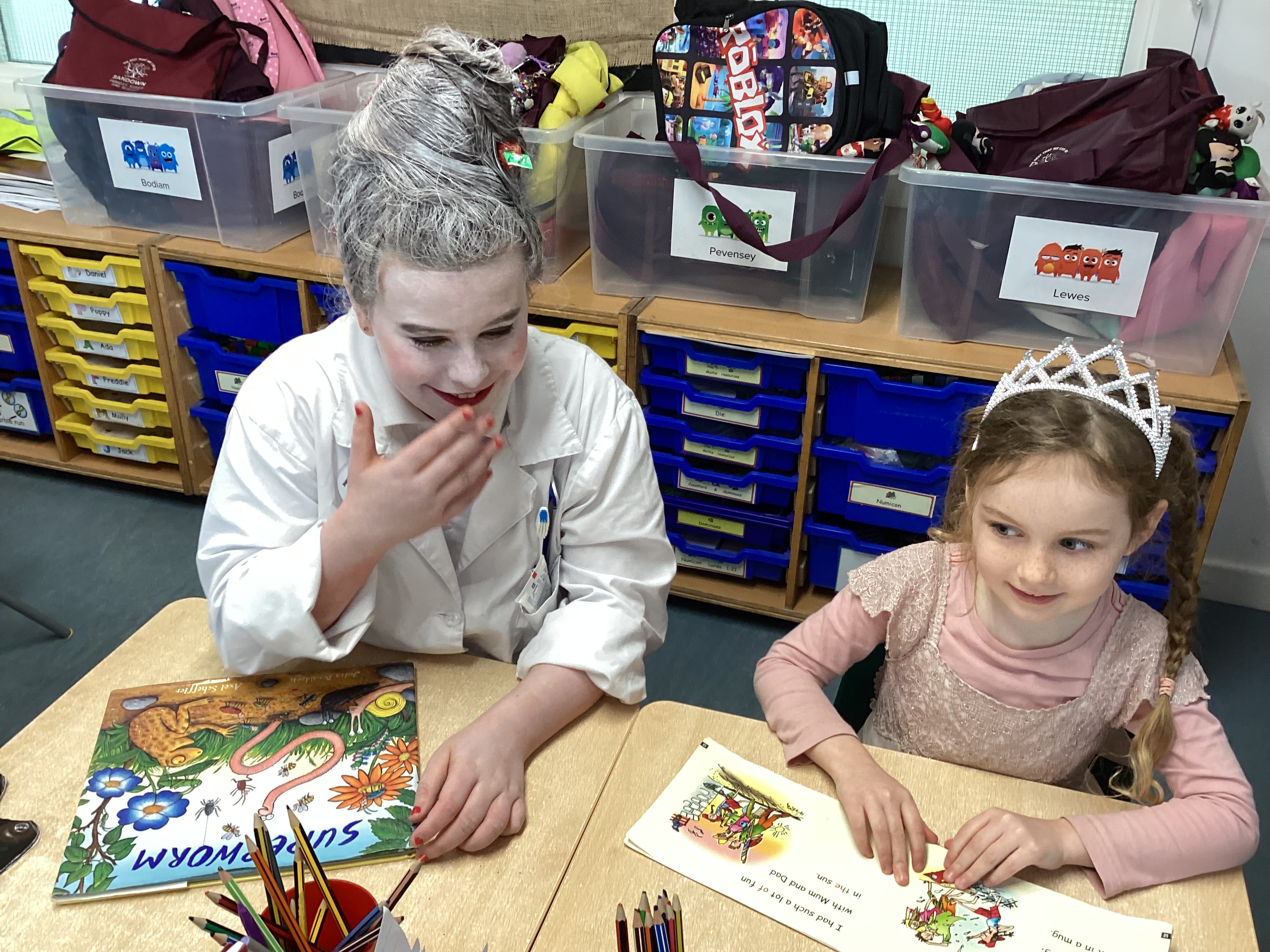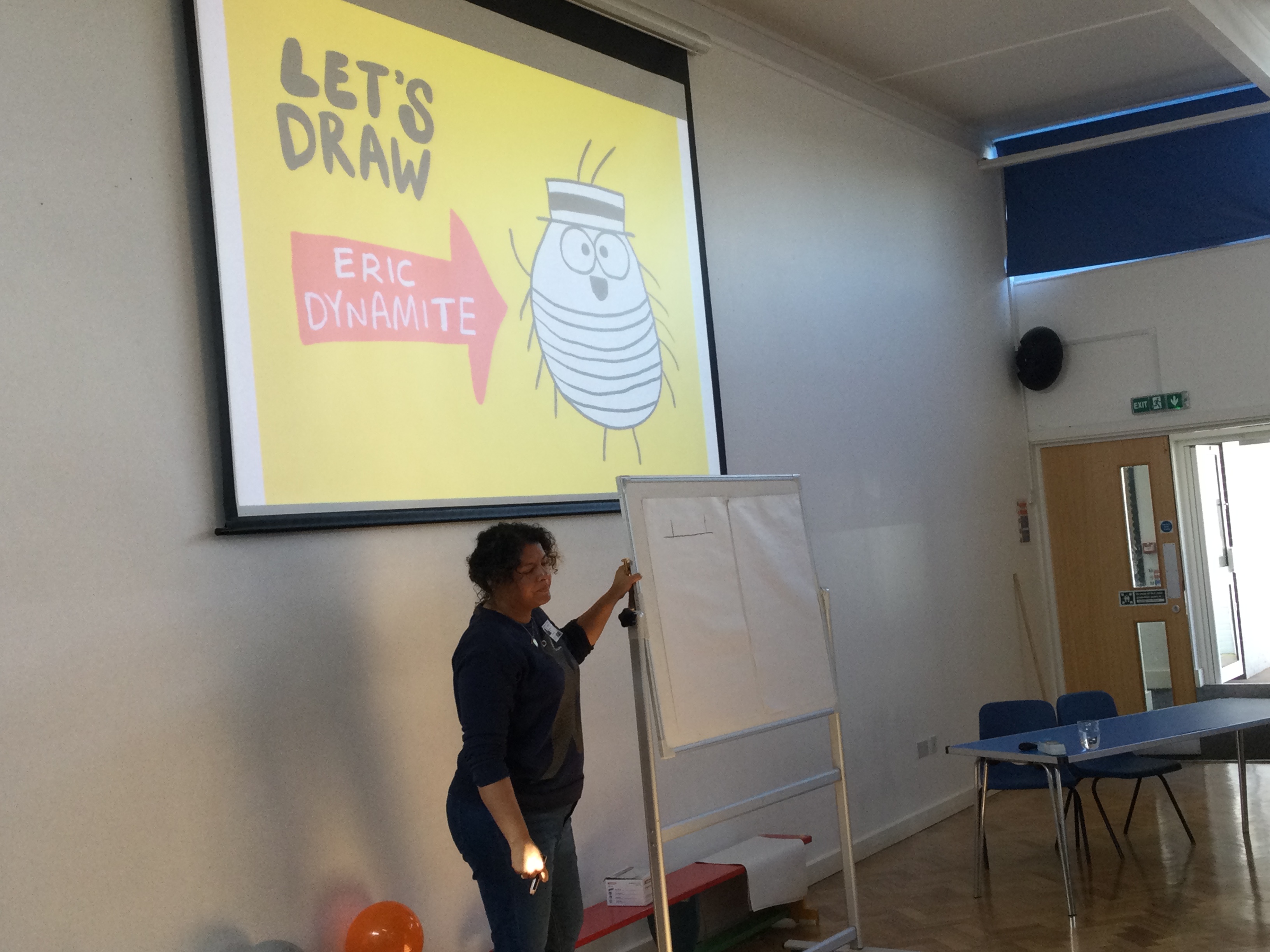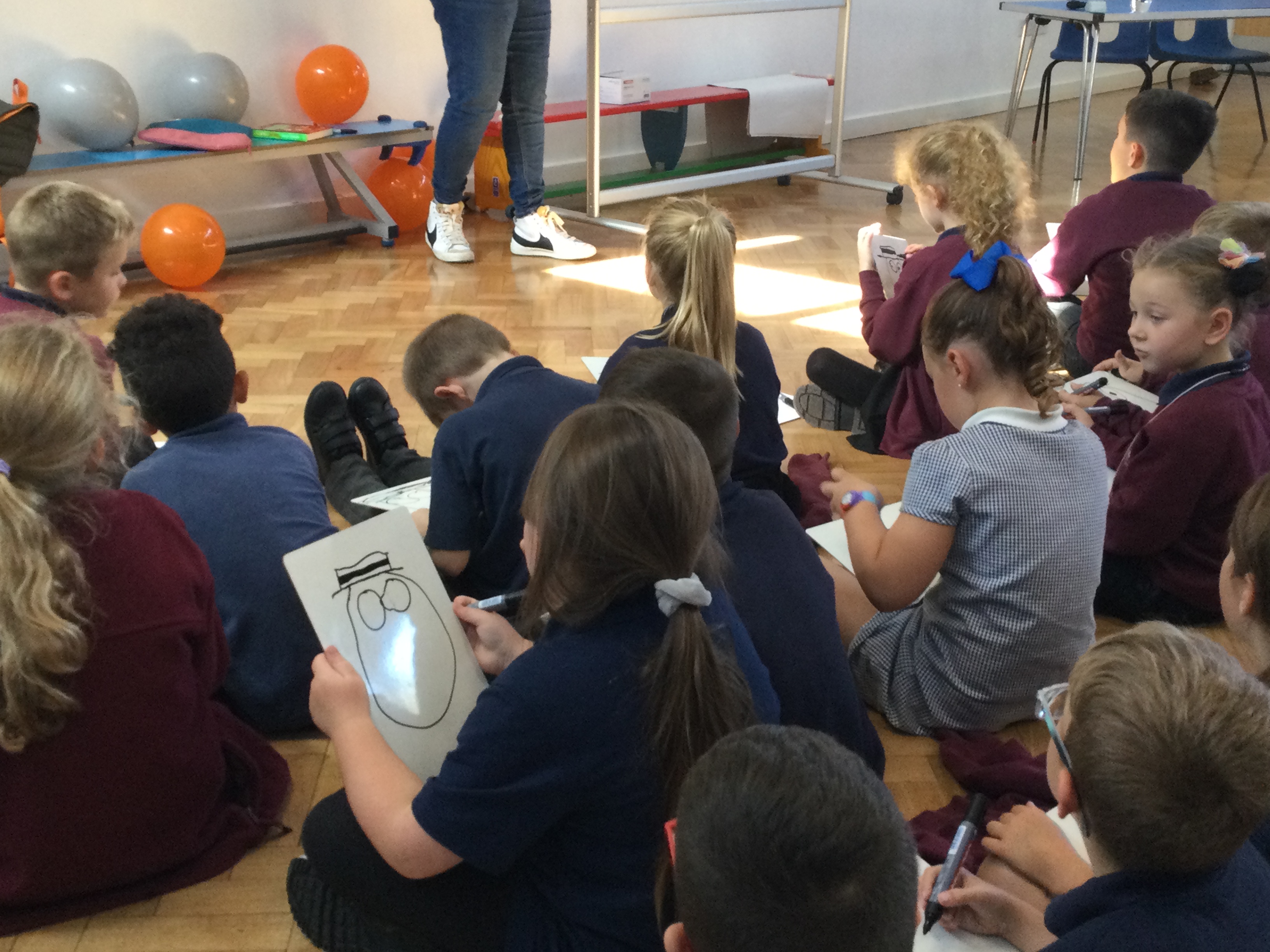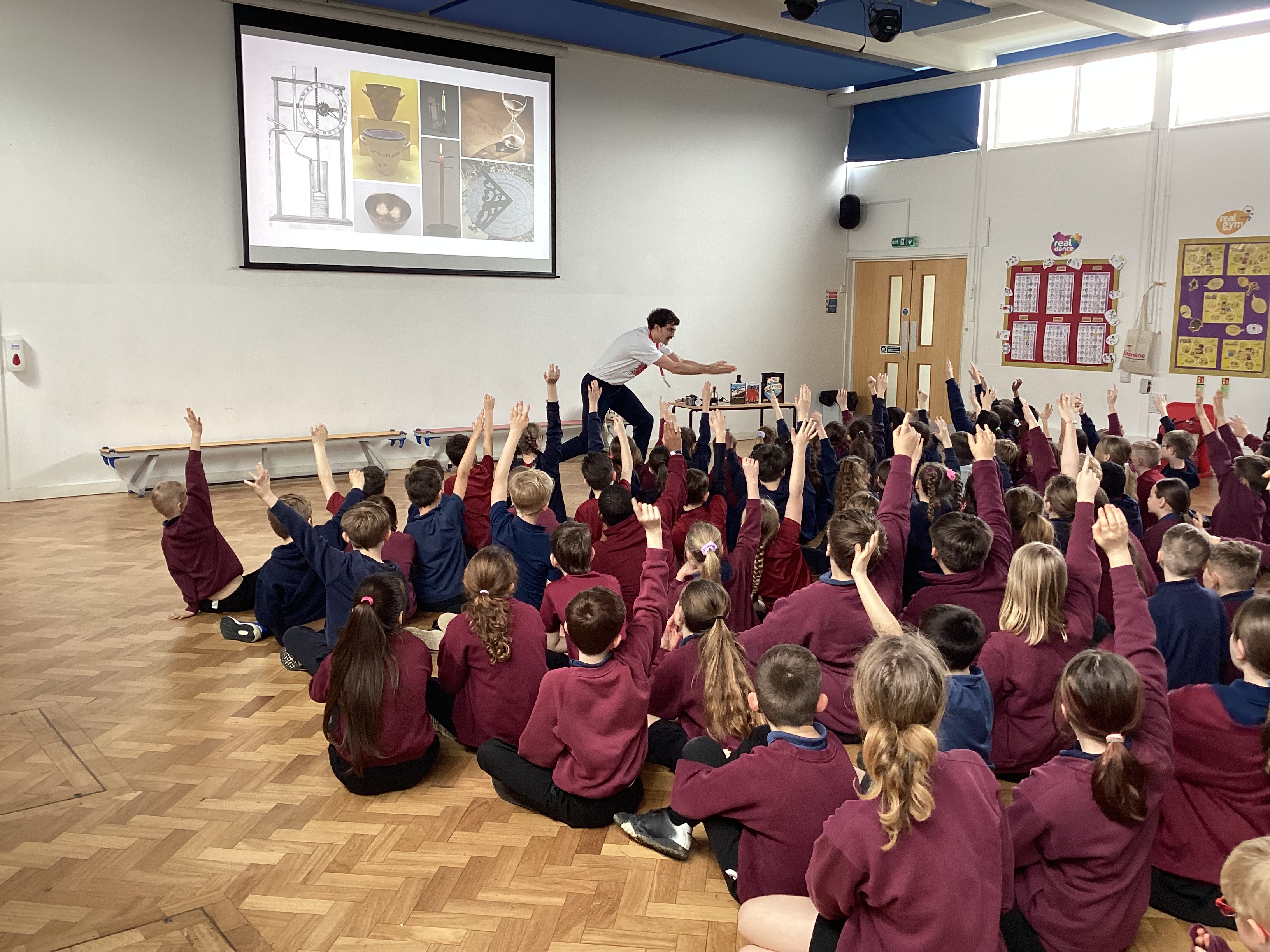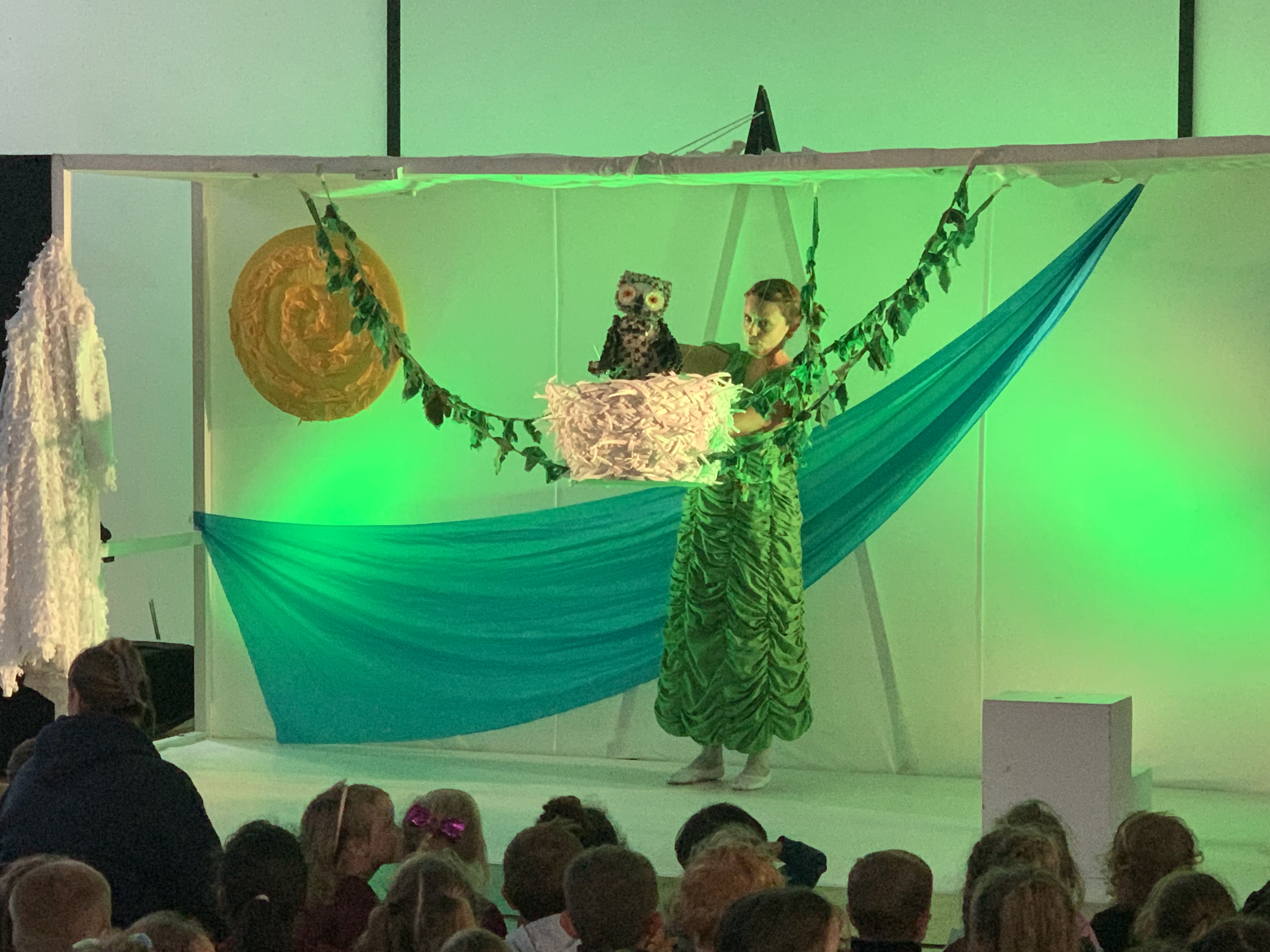English has a fundamental place in education and in society. Our intent at Sandown is to deliver high-quality English education that teaches pupils to read fluently, communicate effectively, write purposefully, and develop a lifelong love of reading. Through reading, in particular, pupils can develop culturally, emotionally, intellectually, socially, and spiritually.
Literature plays a key role in such development. Reading also enables pupils to both acquire knowledge and build on what they already know.
You can read more about our English Curriculum here.
You can see our Literature Spine here.
At Sandown, we strive to bring English to life. We have regular special events to engage the children with the subject. We offer author visits, storytelling puppet shows, storytelling workshops, poetry days, virtual poet and author visits, and book character dressing-up days. We also have a weekly celebration assembly where children are celebrated as ‘Reading Bugs’ or members of the ‘90% Club’ and win book prizes from our book vending machine.
Across EYFS and KS1, phonics is taught systematically daily, following the Read Write Inc. scheme. Read Write Inc (RWI) is a phonics-based programme which helps children learn to read and write, whilst also developing a wide range of vocabulary and encouraging a love of stories. When children are confident with their sounds and word-reading, they receive a Fred Frog keyring.
In Key Stage 2, we use a whole-class reading approach to develop reading fluency and comprehension. The four fluency elements we teach through adult modelling and non-examples, echo reading, choral reading and repeated reading, are Phrasing, Expression and Volume, Pace and Smoothness (PEPS). Through questioning and adult modelling, we teach children six key comprehension strategies: Vocabulary, Inference, Prediction, Explanation, Retrieval and Summarising/Sequencing (VIPERS). Children are taught what these strategies are, how to use them, and when and why to use each strategy. In KS2, children also use the Accelerated Reader programme to develop their skills through reading books matched to their ability.
In September 2024, we began our Talk for Writing journey by becoming a Talk for Writing school. We are working closely with a local Talk for Writing training centre to implement this approach with fidelity. Talk for Writing was developed by the teacher, author and poet Pie Corbett and is based on the key principles of how children learn. This creative yet rigorous approach enables children to imitate the key language patterns they need for a particular text type orally before they read and analyse it. Through engaging activities that help them rehearse the language’s tune, followed by shared writing to show them how to craft their writing, children are supported in writing in the same style. Our RWI spelling and handwriting schemes support children in developing transcription skills by building strong spelling knowledge and a legible, joined style.
For additional information about this subject, please contact the school office and ask to speak to the subject leader.
